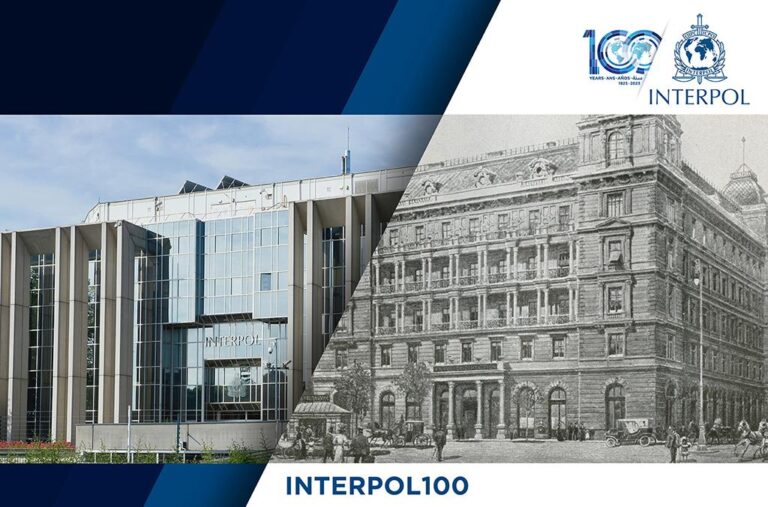Lyon, France: INTERPOL’s CCF – Dates, Delays and Decisions (post 1 of 3)
In the heart of Lyon, France, a significant chapter unfolds in the ongoing narrative of international justice and law enforcement. The International Criminal Police Organization, commonly known as INTERPOL, operates its Commission for the Control of Files (CCF) from this historic city, where it plays a critical role in overseeing the organization’s information management and compliance with human rights standards. As the global landscape of crime evolves, so too do the challenges facing the CCF—the body responsible for reviewing contentious cases and concerns surrounding data processing and misuse. This three-part article series examines the intricate workings of the CCF, exploring key dates in its history, the delays that often hinder timely decision-making, and the implications of its rulings for individuals and nations alike. Join us as we delve into the complexities that define this pivotal institution and its mission within the interconnected world of global law enforcement.
Impact of INTERPOL’s CCF on Global Law Enforcement Strategies
The establishment of INTERPOL’s CCF (Commission for the Control of INTERPOL’s Files) has brought significant changes to global law enforcement strategies. This body not only ensures compliance with data protection standards but also strengthens transparency and accountability within international police cooperation. Law enforcement agencies across member countries are now recalibrating their protocols to harmonize with CCF regulations, thus promoting a more unified approach to tackling transnational crime.
Furthermore, the CCF’s mandate influences the procedural frameworks in which law enforcement operates. Agencies are now more inclined to consider the implications of data sharing and the repercussions of issuing alerts, ensuring that they are acting within the bounds of human rights. Some key adaptations include:
- Enhanced training programs for officers focusing on data handling.
- Stricter internal controls for information dissemination.
- Global best practices in asylum-related inquiries to minimize wrongful detentions.
Timeline of CCF’s Operational Challenges and Delays
The operational trajectory of INTERPOL’s CCF (Commission for the Control of INTERPOL’s Files) has been riddled with significant challenges and delays over the years, reflecting the complexities of its mission. Some of the key dates to consider include:
- 2017: Initial framework revisions kick off, focusing on enhancing transparency and accountability, but none of the proposed changes materialized by year-end.
- 2019: Major administrative hurdles lead to multiple postponements of meetings that were crucial for policy updates, leaving stakeholders frustrated.
- 2020: The pandemic exacerbates existing delays, with remote operations hampering timely decision-making and progress on key initiatives. The CCF reported a backlog in processing requests, leading to further scrutiny of its efficiency.
- 2021: A partial reinstatement of operations; however, vital discussions about jurisdiction and governance remain unresolved, showcasing enduring operational strife.
To better illustrate these challenges, a brief timeline table highlights milestones versus operational setbacks:
| Date | Event | Impact |
|---|---|---|
| 2017 | Framework revisions initiated | No changes implemented |
| 2019 | Postponements of key meetings | Stakeholder frustration |
| 2020 | Pandemic-induced operational delays | Backlog of requests |
| 2021 | Partial return to operations | Unresolved governance discussions |
Key Decisions Shaping INTERPOL’s Framework and Practices
Recent developments within INTERPOL have catalyzed significant shifts in the organization’s framework and operational practices. Central to these changes is the Independent Commission on INTERPOL Reform, which has been instrumental in shaping policy decisions that prioritize transparency and accountability. This commission has been tasked with evaluating and redefining INTERPOL’s governance structures to enhance its effectiveness in combating transnational crime while respecting human rights. Key proposals include establishing clearer protocols for notifications and alerts, as well as reinforcing the independence of internal oversight mechanisms.
In addition to reform initiatives, INTERPOL’s Executive Committee has made pivotal decisions regarding the allocation of resources and strategic priorities. These decisions focus on strengthening global cooperation among member countries, especially in areas such as cybercrime and terrorism. Noteworthy initiatives under consideration include:
- Expansion of Training Programs: To bolster law enforcement capabilities worldwide.
- Enhanced Data Sharing Protocols: Aiming for improved intelligence sharing between member states.
- Implementation of a New Funding Model: To ensure sustainable financial support for operations.
These efforts reflect INTERPOL’s commitment to evolving its practices in line with contemporary challenges, ensuring that its operations not only meet current security demands but also anticipate future needs.
Recommendations for Improved Transparency and Efficiency in CCF Operations
To enhance the operational integrity of INTERPOL’s CCF, a multi-faceted approach focusing on transparency and efficiency is essential. Key recommendations include:
- Standardization of Procedures: Establishing consistent rules and protocols for CCF processes can minimize ambiguity and streamline decision-making.
- Regular Reporting Mechanisms: Implementing quarterly reports on case outcomes and operational metrics would foster accountability and trust among member countries.
- Stakeholder Engagement: Involving a broader range of stakeholders, including civil society organizations, during deliberations can enhance inclusivity and ensure diverse perspectives are considered.
- Training Programs: Regularly scheduled workshops and training sessions for CCF personnel can ensure they are well-versed in best practices and emerging trends in international law.
Moreover, adopting technology solutions could further bolster efficiency. A proposed digital case management system could streamline documentation and facilitate real-time communication among involved parties. Consider the following potential features:
| Feature | Benefit |
|---|---|
| Cloud-Based Storage | Secure access to documents from any location, ensuring continuity. |
| Automated Notifications | Timely updates on case progress reduce unnecessary delays. |
| Data Analytics Tools | Insightful reports on case timeliness and outcomes for continuous improvement. |
Key Takeaways
In conclusion, Lyon, France, stands as a pivotal hub for INTERPOL’s Committee for the Control of Files (CCF), which plays a critical role in overseeing the integrity and efficiency of international police databases. As we’ve explored in this first installment of our three-part series, the timelines, challenges, and decision-making processes within the CCF are complex and often fraught with delays that can have significant implications for individuals and nations alike.
As we move forward in this series, we will delve deeper into the specific mechanisms that govern the CCF’s operations, and the impact of its decisions on global law enforcement practices. Stay tuned for our next article, where we will shed light on the procedural nuances and real-world ramifications of the CCF’s actions. As the international community grapples with issues of justice and security, understanding the functioning of institutions like the CCF is more crucial than ever.




